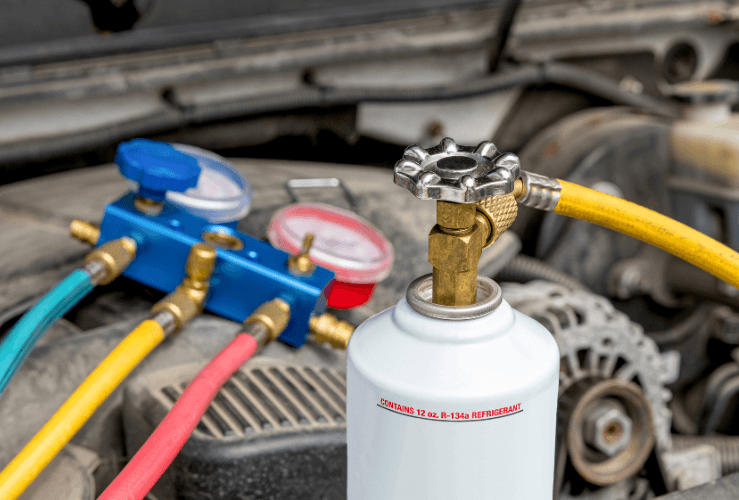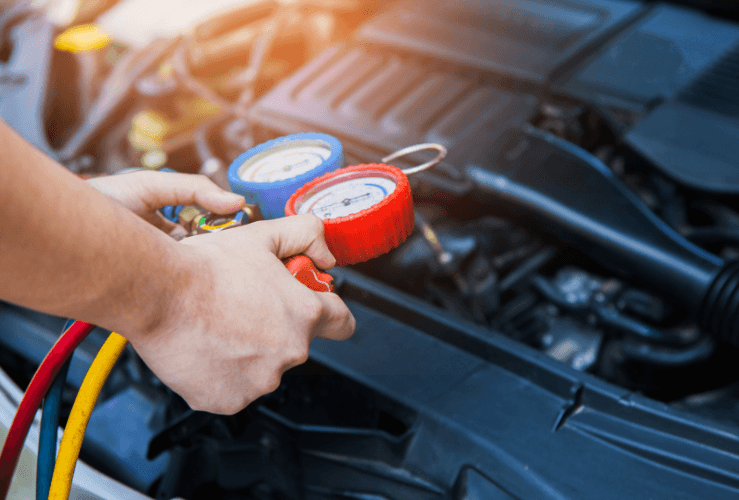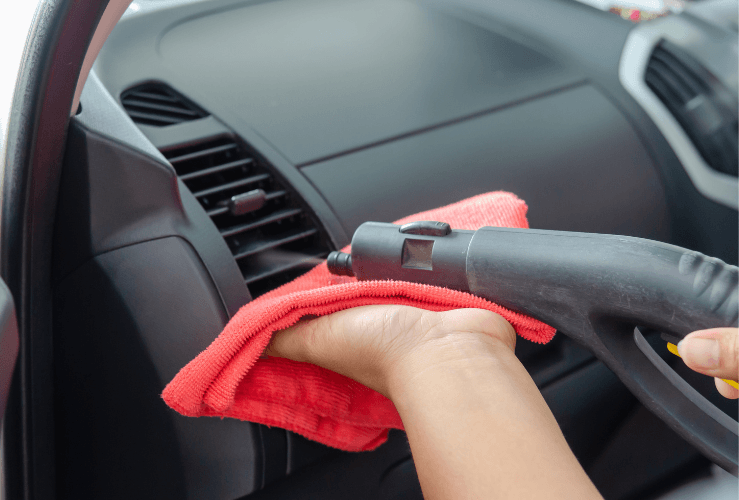Is your car's air conditioning system not as effective as it used to be? Do you barely notice the difference between it being 'on' or 'off'? Have you owned your car for years without a second thought for your AC's refrigerant level? If so, it might be time for a ‘regas’.
Here we look at signs your gas is low, how to regas your car’s air conditioner - and how to keep your AC in tip-top condition moving forward.
Note: You should always check your vehicle handbook for any fault remedy before carrying out any work on your vehicle. If you are unsure of what is required to fix any problems, please consult a professional.
What is an air con 'regas'?
To 'regas' your car's air conditioning system is to remove any old gas from the refrigerant tank and fill it with a new supply.
How do I know if my air con needs regassing?
The main clue your AC needs regassing is that cool air is no longer expelled from the vents, or that there is no difference in air temperature whether the AC is on or off.
If it's been some time since your last regas, it's a task you should complete sooner rather than later. A faulty air con system can be caused by other issues, but low gas is the most likely culprit.
Car regas air conditioning cost
Your local independent garage or franchise dealership will be able to regas your air conditioning, with the former likely the cheaper option. You'll need to pay for both the refrigerant gas and the labour, amounting to between £50 and £200.

Can you recharge air con yourself?
Yes, you can regas your own air con. However, buying the gas yourself is almost as costly as paying a garage to do it, and if something goes wrong, you'll need to take it to a garage anyway.
Additionally, AC refrigerant can cause injury or irritation, and if you mix the wrong types of gas together, dangerous chemical reactions can result.
That said, for someone with sufficient experience, it might be an option.
Remember! You should always check your vehicle handbook for any fault remedy before carrying out any work on your vehicle. If you are unsure of what is required to fix any problems, please consult a professional.
What type of AC gas does my car use?
Your vehicle's manual will detail which type of refrigerant gas to use. Most cars also have an aircon label under the bonnet, displaying this information.
Car air con leaks
If your air conditioning system has a leak, it may be cheaper to regas on a more regular basis than pay thousands to have your AC repaired.
A regassed air con should last about a year. However, if you find you need to regas very often, it may be worth getting a full repair done.
It's also worth noting that refrigerants create chlorofluorocarbons (CFCs) or greenhouse gases, which are harmful to the environment - so you'll be doing your bit by sorting a long term fix.
Not regassing car air con often enough
Many drivers wait until their air conditioning system stops pumping out cool air. However, waiting too long can put strain on your engine and waste fuel.
Is it illegal to drive without air con in the UK?
Highway Code rule 237 states that drivers must keep their vehicle well-ventilated.
Poor ventilation might cause drowsiness, which might lead to careless driving - and potentially a fine.

How can I look after my air conditioning system?
Regas regularly
Refer to your car's user manual to find out how often you should recharge your refrigerant (usually once every two or three years).
Like other liquids in your car, as the gas gets low, so too will the efficacy of your air con system.
If you wait too long to regas your AC, you may need a trained technician to drain and refill the system - which will be costly and time-consuming.
Note that your regular "annual service" is unlikely to include an aircon overhaul. However, you can enlist a trained technician to regas your system. They should also vacuum-test the AC to ensure there are no leaks. This process should detect small cracks that could lead to bigger problems later on.
Run your car air conditioning every week
By turning over your car AC on a regular basis, you'll help keep the compressor working optimally and maintain the right gas pressure.
Aim to test the defrost system at the same time - this will help prevent moisture and mildew buildup.
Keep the car windows shut
By keeping the cooler air inside your vehicle, you'll use less fuel and refrigerant, while ensuring you feel the full benefit of the AC.
Clean, vacuum, dust
By keeping both your cabin interior and your car AC vents and system clean, you'll prevent bacteria from building up, making the air cleaner and healthier for you and your passengers - and smelling fresh.





